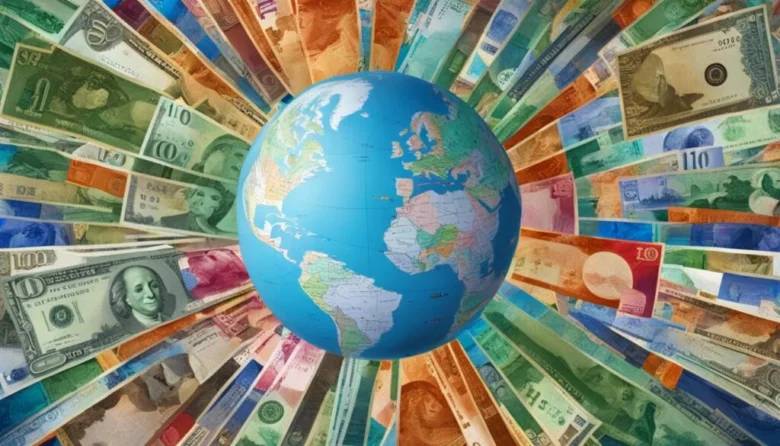Traveling abroad is an exciting adventure, but managing your money in a foreign currency can be a challenge. Currency exchange is a crucial aspect of travel planning, and understanding how to navigate it effectively can save you a significant amount of money. This guide will help you master the art of currency exchange and ensure you get the best value for your travel funds.
Understanding Currency Exchange Rates
The first step in mastering currency exchange is understanding how rates work. A currency exchange rate is the value of one currency compared to another. These rates fluctuate constantly due to factors like economic stability, interest rates, and global events.
- Spot Rate vs. Buy/Sell Rate: The spot rate is the current exchange rate in the global market. However, when you exchange money, financial institutions apply a buy/sell rate, which includes their profit margin. Always check the rate being offered to you.
- Dynamic Exchange Rates: Keep an eye on exchange rate trends before your trip. Using apps like XE Currency or OANDA can help you monitor fluctuations and decide the best time to exchange your money.
Plan Ahead: When and Where to Exchange Money
One of the biggest mistakes travelers make is exchanging money at the last minute. Planning ahead can save you from exorbitant fees and poor rates.
- Before You Leave:
- Visit your local bank or credit union, as they often offer better rates than airport kiosks or hotels.
- Order foreign currency in advance to ensure availability.
- At Your Destination:
- Use local ATMs for better rates, but ensure your debit card is accepted internationally.
- Avoid exchanging money at airports or tourist areas, where rates are typically unfavorable.
Avoid Excessive Fees
Currency exchange fees can quickly add up, eating into your travel budget. Here are some tips to minimize them:
- ATM Fees:
- Use debit cards that reimburse foreign ATM fees or belong to a global ATM alliance.
- Withdraw larger amounts to avoid multiple transaction fees.
- Credit Card Foreign Transaction Fees:
- Use credit cards with no foreign transaction fees for purchases abroad.
- Notify your bank of your travel plans to avoid card blocks.
- Exchange Fees:
- Compare fees among banks, currency exchange services, and online providers before deciding.
Choosing the Right Payment Methods
Using the right payment methods abroad can make a significant difference in cost and convenience.
- Cash:
- Essential for small purchases, street vendors, and tipping in cash-based economies.
- Carry a mix of small and large denominations for flexibility.
- Credit Cards:
- Ideal for larger transactions and emergencies.
- Opt for cards with travel rewards to earn points or miles.
- Prepaid Travel Cards:
- Load these cards with your desired currency for a fixed exchange rate.
- A safer alternative to carrying large amounts of cash.
Beware of Dynamic Currency Conversion
Dynamic Currency Conversion (DCC) is when a merchant offers to charge your card in your home currency instead of the local one. While it might seem convenient, DCC often involves poor exchange rates and hidden fees.
- Best Practice: Always choose to pay in the local currency to avoid unfavorable conversion rates.
Leverage Technology for Better Rates
Technology has revolutionized currency exchange, offering travelers more control and transparency.
- Currency Converter Apps:
- Apps like Revolut and Wise (formerly TransferWise) provide real-time exchange rates and low-fee transfers.
- Online Exchange Services:
- Services like OFX and CurrencyFair allow you to exchange money at competitive rates and transfer it directly to your bank account.
- Budgeting Tools:
- Use travel budgeting apps to track expenses and ensure you stay within your financial limits.
Timing Your Currency Exchange
Exchanging currency at the right time can significantly impact your savings.
- Monitor Rates: Start tracking rates weeks or months before your trip.
- Exchange in Increments: Avoid exchanging all your money at once. Convert small amounts as needed to take advantage of rate fluctuations.
Safety Tips for Handling Foreign Currency
Carrying cash in a foreign country requires extra precautions to avoid loss or theft.
- Use Money Belts or Hidden Wallets: Keep large amounts of cash in secure, concealed places.
- Split Your Money: Distribute your cash between different bags or companions to reduce risk.
- Beware of Counterfeit Currency: Familiarize yourself with the appearance and security features of the local currency.
What to Do with Leftover Currency
After your trip, you may find yourself with leftover foreign currency. Here are some ways to handle it:
- Save for Future Trips: If you’re likely to revisit the same country, keep the currency.
- Exchange Back to Your Home Currency: Use banks or currency exchange services with low fees.
- Donate or Gift: Consider donating small amounts to charity or gifting it to friends planning a similar trip.
Final Thoughts
Mastering currency exchange is an essential skill for savvy travelers. By understanding exchange rates, planning ahead, and leveraging technology, you can minimize fees and make the most of your travel budget.
Beyond saving money, managing currency exchange effectively allows you to focus on the joy of exploration and discovery. You’ll spend less time worrying about hidden fees or unfavorable rates and more time savoring the experiences that make travel unforgettable. Whether you’re bargaining at a vibrant local market, dining at a charming café, or embarking on a guided tour, knowing that you’ve maximized your financial resources adds peace of mind.
Every journey brings unique challenges and opportunities, and currency management is no exception. As you continue to explore the world, your skills in handling foreign currency will improve, empowering you to navigate even the most complex financial situations with confidence. Start your next adventure with these strategies in mind, and enjoy the rewards of being a well-prepared, financially savvy traveler.




